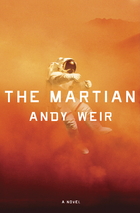Title: Blood of the Tiger
Author: J.A. Mills
Author: J.A. Mills
Publisher: Beacon Press
I feel like the proverbial ostrich, hiding its head in
the sand. On an intellectual level, I knew, of course, that people all over the
world kill many of our endangered species for some pitiful reasons. But until I
read this, I don't think I truly knew how widespread it is, how 'normal' it is,
and how much of it even happens here in the U.S.
J.A. Mills forced my head out of the sand.
Now, I don't want to worry you. The book isn't written
like some fire and brimstone religious sermon. It doesn't club you over the
head with atrocities and try to make you feel like the lowest form of humanity
for not being aware of this before.
In fact, the writing style is engaging, honest,
personable, and incredibly readable. Is it a plea for humans to have a little
more humanity? Absolutely. But it's done in such a way that you feel energized
and hopeful instead of guilty and hopeless.
The author is fully aware of her own prejudices. I
appreciated the fact that she tells you that some of what she once thought were
ignorant ideas about the health benefits of some animal parts actually have
some basis in science. No, it still doesn't excuse cruelty and atrocity, but it
was refreshing that she admits her own ignorance. You also witness her journey
from the kind of activist who wants to scream injustices to the world, to a
true advocate who still wishes to change the world, but does so with education,
understanding, and heart.
The book is an adventure story that presents important
truths, a ton of hope, and just may light a fire for change.
*ARC Provided by Amazon Vine Program.







